THE KOREA SOCIETY
STRATEGIC PLAN
2022 - 2026
(March 5, 2025)
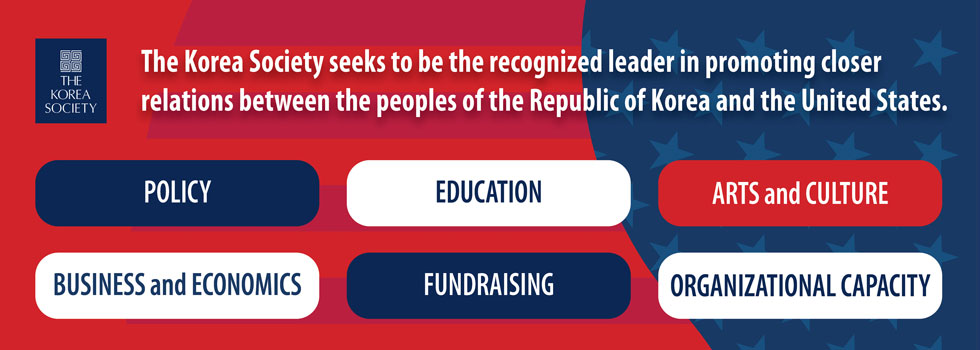
| VISION: The Korea Society seeks to be the recognized leader in promoting closer relations between the peoples of the Republic of Korea and the United States. |
| MISSION: The Korea Society is a nonprofit, nonpartisan, 501(c)(3) organization with individual and corporate members that is dedicated to the promotion of greater awareness and understanding in order to strengthen cooperation between the peoples of the United States and Republic of Korea. |
In the area of Policy, promote and increase interest, knowledge, and discussion of the importance of Korea and the ROK - U.S. Alliance in order to maintain and strengthen the diplomatic and security relationships, all aspects of which are critical for the future of both countries. .
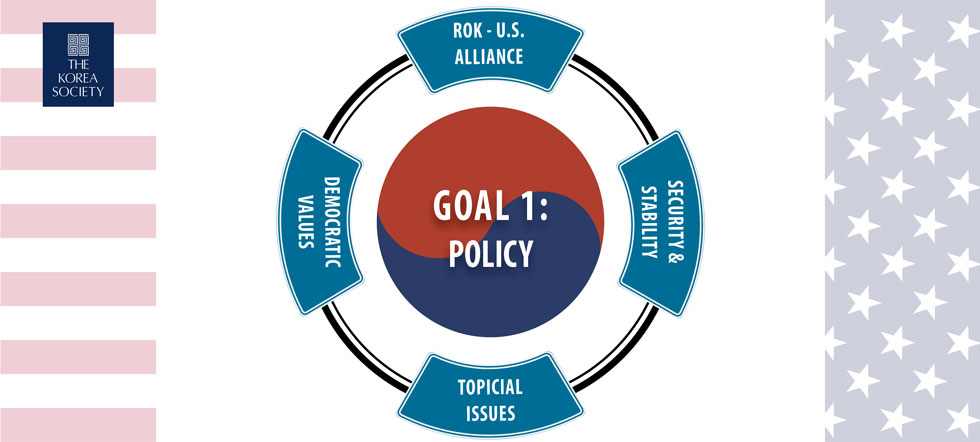
Priorities:
Strategies:
Key Performance Indicators:
|
In the area of Education, advance educational opportunities and programs for students and educators in order to promote mutual understanding and appreciation as well as develop and sustain the long-lasting ties between our two nations for generations to come.
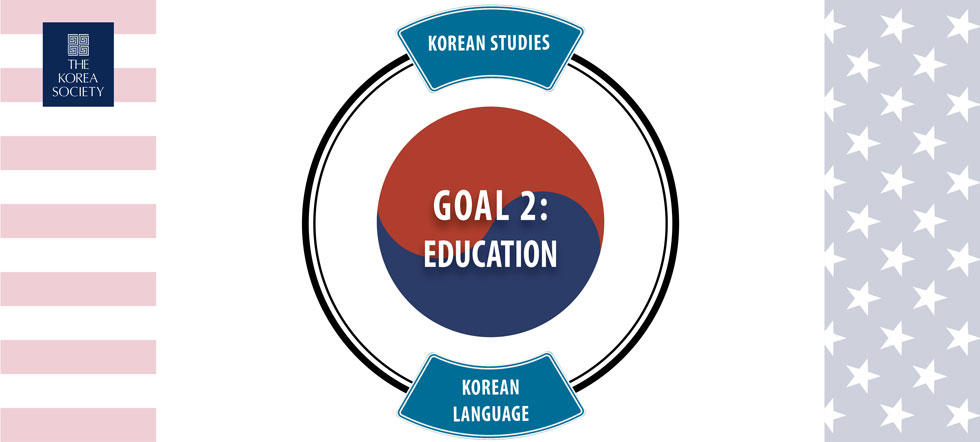
Priorities:
Strategies:
Key Performance Indicators:
|
In the area of Arts & Culture, promote the diversity and excellence of Korean and Korean-American artists, performers, authors, and other professionals in the broadly defined area of culture.
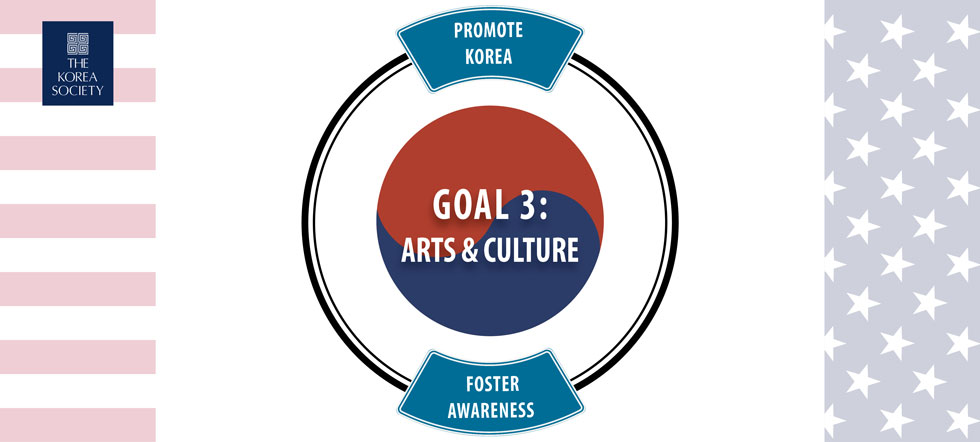
Priorities:
Strategies:
Key Performance Indicators:
|
In the area of Business & Economics, bring greater awareness of and focus on business relationships between the U.S. and the Republic of Korea in order to strengthen economic relations.
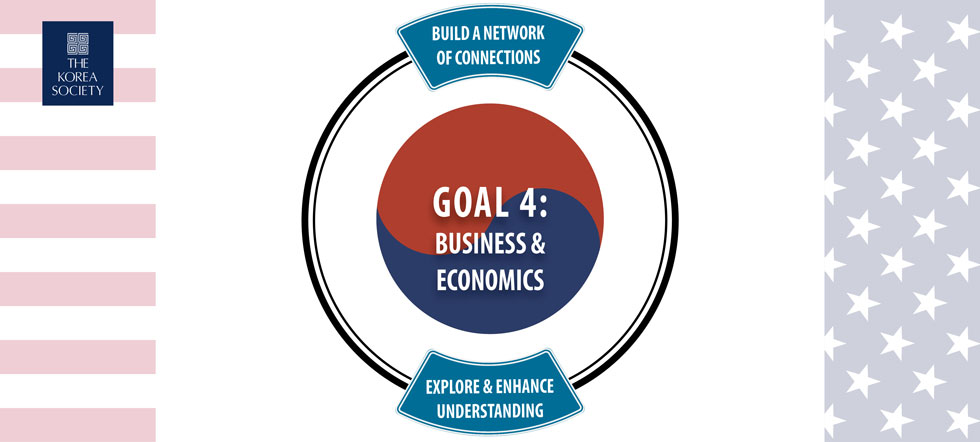
Priorities:
Strategies:
Key Performance Indicators:
|
Expand and increase consistent and predictable contributions of foundations, corporations, individuals to The Korea Society’s activities and its finances.

Priorities:
Strategies:
Key Performance Indicators:
|
Strengthen and grow TKS to enable it to accomplish the Society’s mission and organizational vision.

Priorities:
Strategies:
Key Performance Indicators:
|
